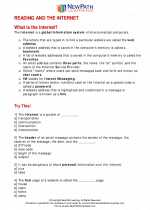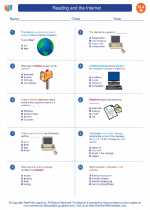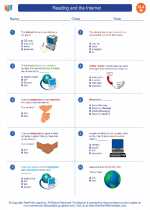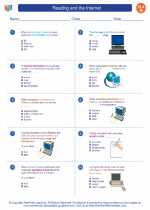Introduction
Reading and the Internet have a complex relationship. The Internet has revolutionized the way we access and consume information, providing a vast array of texts, multimedia, and interactive content. It has also raised concerns about the impact of digital reading on attention spans, critical thinking, and deep comprehension. This study guide explores the benefits and challenges of reading on the Internet, and provides strategies for effective online reading.
Benefits of Reading on the Internet
- Access to a wide range of information and perspectives
- Interactive and multimedia elements enhance engagement
- Ability to connect with other readers and participate in online discussions
- Opportunities for personalized and adaptive reading experiences
Challenges of Reading on the Internet
- Distractions from advertisements, pop-ups, and multimedia content
- Potential for shallow reading and reduced attention span
- Risk of encountering misinformation and unreliable sources
- Impact on deep comprehension and critical thinking skills
Strategies for Effective Online Reading
- Practice active reading: engage with the text, ask questions, and make connections
- Be mindful of distractions and use ad-blocking tools if necessary
- Evaluate the credibility of sources and cross-reference information
- Take regular breaks to combat digital fatigue and eye strain
- Participate in online reading communities to share insights and gain diverse perspectives
Conclusion
Reading on the Internet offers unparalleled access to information and new modes of engagement, but it also presents challenges that require mindful and critical approaches. By developing effective online reading habits, readers can harness the benefits of digital text while mitigating its potential drawbacks.
[Reading And The Internet] Related Worksheets and Study Guides:
.◂English Language Arts Worksheets and Study Guides Eighth Grade. Reading and the Internet

 Worksheet/Answer key
Worksheet/Answer key
 Worksheet/Answer key
Worksheet/Answer key
 Worksheet/Answer key
Worksheet/Answer key
